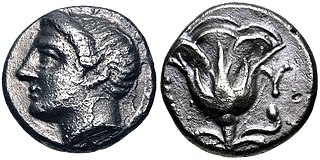This article concerns the period 359 BC – 350 BC.
This article concerns the period 339 BC – 330 BC.

This article concerns the period 329 BC – 320 BC.
Year 336 BC was a year of the pre-Julian Roman calendar. At the time, it was known as the Year of the Consulship of Crassus and Duillius. The denomination 336 BC for this year has been used since the early medieval period, when the Anno Domini calendar era became the prevalent method in Europe for naming years.
Year 330 BC was a year of the pre-Julian Roman calendar. At the time, it was known as the Year of the Consulship of Crassus and Venno. The denomination 330 BC for this year has been used since the early medieval period, when the Anno Domini calendar era became the prevalent method in Europe for naming years.

The Battle of Issus occurred in southern Anatolia, on 5 November 333 BC between the Hellenic League led by Alexander the Great and the Achaemenid Empire, led by Darius III. It was the second great battle of Alexander's conquest of Asia, and the first encounter between Darius III and Alexander the Great. The battle resulted in the Macedonian troops defeating the Persian forces.

Antipater was a Macedonian general and statesman under the successive kingships of Philip II of Macedon and his son, Alexander the Great. In the wake of the collapse of the Argead house, his son Cassander would eventually come to rule Macedonia as a king in his own right.

The wars of Alexander the Great were a series of conquests that were carried out by Alexander III of Macedon from 336 BC to 323 BC. They began with battles against the Achaemenid Persian Empire, then under the rule of Darius III of Persia. After Alexander's chain of victories against Achaemenid Persia, he began a campaign against local chieftains and warlords that stretched from Greece to as far as the region of Punjab in South Asia. At the time of his death, he ruled over most regions of Greece and the conquered Achaemenid Empire ; he did not, however, manage to conquer the Indian subcontinent in its entirety according to his initial plan. Despite his military accomplishments, Alexander did not provide any stable alternative to the rule of the Achaemenid Empire, and his untimely death threw the vast territories he conquered into a series of civil wars, commonly known as the Wars of the Diadochi.

The Battle of the Granicus in May 334 BC was the first of three major battles fought between Alexander the Great of Macedon and the Persian Achaemenid Empire. The battle took place on the road from Abydus to Dascylium, at the crossing of the Granicus in the Troad region, which is now called the Biga River in Turkey. In the battle Alexander defeated the field army of the Persian satraps of Asia Minor, which defended the river crossing. After this battle, the Persians were forced on the defensive in the cities that remained under their control in the region.

Alexander Senki, released in North America as Reign: The Conqueror and in Europe as Alexander the Great, is a Korean-Japanese anime first released in 1999. A re-imagination of the life of Alexander the Great based on the novel of the same name by Hiroshi Aramata, the series was produced by an international crew that drew from the resources of the worldwide animation community. Character designs and original designs for the show were conceived by Peter Chung while the show was written by Sadayuki Murai and directed by Yoshinori Kanemori. Most of the production work was handled by Korean animators.

Memnon of Rhodes was a prominent Rhodian Greek commander in the service of the Achaemenid Empire. Related to the Persian aristocracy by the marriage of his sister to the satrap Artabazus II, together with his brother Mentor he served the Persian king for most of his life, and played an important role during the invasion of Alexander the Great and the decades before that.
Parmenion, son of Philotas, was a Macedonian general in the service of Philip II of Macedon and Alexander the Great. A nobleman, Parmenion rose to become Philip's chief military lieutenant and Alexander's strategos. He was assassinated after his son Philotas was convicted on a charge of treason. His siblings Asander and Agathon would also become prominent members of Alexander's Macedonia.
Mentor of Rhodes was a Greek mercenary and later Satrap of the Asiatic coast. He fought both for and against Artaxerxes III of Persia. He is also known as the first husband of Barsine, who later became mistress to Alexander the Great.

Artabazos II was a Persian general and satrap of Hellespontine Phrygia. He was the son of the Persian satrap of Hellespontine Phrygia Pharnabazus II, and younger kinsman of Ariobarzanes of Phrygia who revolted against Artaxerxes III around 356 BC. His first wife was an unnamed Greek woman from Rhodes, sister of the two mercenaries Mentor of Rhodes and Memnon of Rhodes. Towards the end of his life, he became satrap of Bactria for Alexander the Great.

The historical and literary tradition describes several of Alexander's relations, some of which are the subject of question among modern historians.
Alexander, son of Aeropus of Lyncestis, was a native of the upper Macedonian district called Lyncestis, whence he is usually called Alexander of Lynkestis or Alexander Lyncestes. Justin makes the singular mistake of calling him Alexander's brother, while in other passages he uses the correct expression.
Pharnabazus III was a Persian satrap who fought against Alexander the Great. His father was Artabazos II, and his mother a Greek from Rhodes.

Child of a Dream is an Historical Novel, the first part of Valerio Massimo Manfredi's Alexander trilogy, released in 1998. It narrates the childhood of Alexander the Great, son of King Philip II of Macedon and Queen Olympias, including his tutelage under the Greek philosopher Aristotle. It also focuses on Alexander's friendship with Hephaestion and Ptolemy, and his preparation to become a warrior able to lead the Macedonian Empire.

The Ends of the Earth is the third and last part of Valerio Massimo Manfredi's trilogy on Alexander the Great. After the Oracle of Ammon told him he is the son of Zeus, Alexander feels invincible and marches north towards the historic town of Babylon. The beautiful city is ravaged and the Palace of Persepolis, the former residence of King Darius, is burnt to ashes together with the memories of the old Empire. It is now time to start anew, and Alexander decides on yet another hard task: unify the Persian people with the Macedonians. As he struggles to convince his countrymen to come to cultural compromises with the Persians, he falls in love with Queen Roxane. And it is this love that gives him the strength to fulfil his epic destiny.

Porus is a historical drama television series based on the Battle of the Hydaspes, visualizing the lives of Porus, ruler of the Paurava Kingdom in India, and Alexander the Great, the king of Macedonia. It aired from 27 November 2017 till 13 November 2018 on Sony Entertainment Television. Another historical drama Chandragupta Maurya replaced it.











